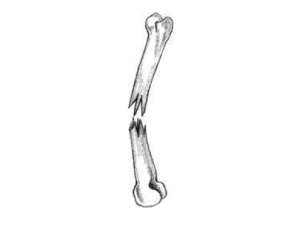MUSCLE AND BONE
(MUSCULOSKELETAL SYSTEM)
SPRAINS, STRAINS, AND BRUISES
Sprains, strains, and bruises (contusions) consist of damage to the soft tissues surrounding and supporting the bones, usually without loss of weight-bearing ability. In these injuries swelling and signs of pain are often quite diffuse, so you may not be able to determine the exact site of injury, only the general area involved.
A contusion occurs when a blow causes the capillaries (small blood vessels) in the affected soft tissues to bleed. You may see skin discoloration, abrasion, or other skin injury at the site of a bruise. However, cats’ fur often obscures the outer signs of injury. Expect a contusion to be free of significant pain in seven to ten days following injury.
Strains result from unaccustomed or excessive activity that overstresses the involved muscle, tendon, and/or site of the attachment of the tendon to the bone. Signs of a strain are often most obvious two or three days after the actual injury occurs. Strains often take one to three weeks of enforced rest to heal.
Sprains are ligament injuries that occur when these soft tissues, which directly surround and stabilize the joints, are stretched (mild or first-degree sprain), partially torn (moderate or second-degree sprain), or completely torn apart (severe or third-degree sprain). All sprains heal slowly even if the signs of pain disappear quickly. Radiographs (X-ray pictures) are often necessary to diagnose a sprain, as the more severe forms can easily cause signs of pain, swelling, deformity, and inability to bear weight that are indistinguishable from signs of a bone fracture. Splinting, casting, or surgery is sometimes needed to return the affected joint to normal stability.
If your cat has a mild to moderate lameness due to soft tissue injury, enforced rest is the best treatment, and it should result in rapid improvement in two to seven days. Confine your cat indoors and, if necessary, to one room or to a cage to reduce activity. You may be tempted to give pain relievers such as aspirin to your cat for such injuries.
Avoid doing so. Most such preparations for humans are contraindicated for cats, and such drugs mask the pain that would encourage your cat to rest the injured area and that is an important clue for you to use in gauging the degree of recovery. Consult your veterinarian in more severe cases.
